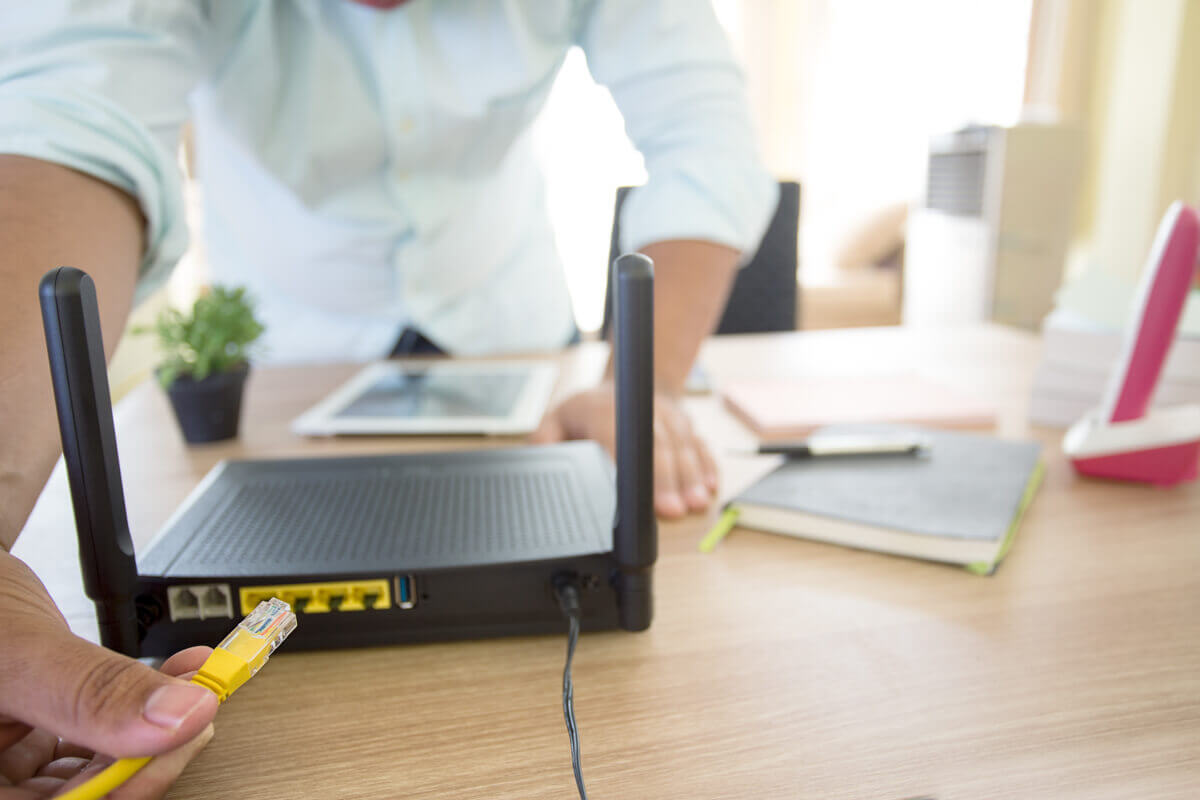Internet Equipment and Terms Guide
Table of Contents
Words for internet equipment and service can sound like a secret language. It gets even more confusing with Wi-Fi equipment enters the conversation, because so many devices and everyday routines depend on it. More and more people now rely on their Wi-Fi connections to do business, go to school, file applications, watch movies, play games, and even see the doctor.
Basic internet jargon is actually not hard to learn. Knowing a few terms can help you save money and get the best performance out of your internet plan.
Internet Service Provider
Your internet service provider, or ISP, is the company that gives you your internet connection. Often, internet plans are packaged together with cable or phone service, called “bundles.” Once you have internet service, you get an IP address, which is how the internet finds you.
DSL comes to you through your phone lines. Cable internet transmits through TV lines and usually travels in larger bundles than DSL. Fiber optic travels through glass fiber cables and is usually found in urban areas. Satellite internet transmits data from a satellite in space without the need for wires to your home.
Modem and Router

The modem is a small computer that translates data into everything you see on your screen, from websites to streams to games. The router shares this translation to multiple devices. Most units are modem-router combos, and usually also include a wireless router.
Your ISP will usually provide this piece of hardware, but you can also buy your own. There are also wireless modems and devices like TP links that get online without an Ethernet cable.
Wireless Network
Most questions about internet equipment are actually about Wi-Fi hardware. Wi-Fi networks are becoming more prevalent in every home and office, so it’s understandable that people want to know more. Wi-Fi equipment isn’t as complicated as all the names and acronyms imply, and knowing what you need for Wi-Fi is just a matter of knowing how you use your wireless access points.
These access points begin at your Wi-Fi gateway router. What is a wireless gateway? Simply a fancy term for a Wi-Fi router, which distributes wireless service throughout your home of office the same way an Ethernet router does. Most Ethernet modem-router combos have one built-in.
Sometimes wireless needs to be extended with antennas (called “extenders” or “repeaters”) that amplify the signal by passing it to preset points. They transmit data back and forth to the router, so it’s all on a single network. The provide secondary access points in places the main router can’t reach, called “dead zones.”
VOIP

Voice-over-IP (VOIP) is becoming more prevalent in growing businesses because it is a flexible way to manage telephone service. It is telephone service offered through the internet, and carries the signal as digital data rather than analog (like an old-style telephone).
Businesses with VOIP might have internet voice equipment their service uses to accommodate a high number of telephone lines. Typically, this equipment includes a special phone that translates the data like a modem, or a headset that plugs into a computer which acts as a telephone.
VOIP is also hiding in plain sight in our homes and on our phones. Apps like Skype or Discord are VOIP-based and allow people from all over the world to talk to one another for just the price of an internet connection, a computer, and a headset. These apps also allow video calls and conferencing, bringing togetherness for friends and loved ones who are far apart.
Broadband
Most people think broadband is directly related to internet speeds, but it’s a bit more complicated than that. Data travels like traffic down the lines or through the signals that are carrying it to your modem. If there is a lot of data, it’s like cars in a traffic jam – it moves slowly. Broadband refers to how wide the signal is, or how much data it can handle before it gets jammed.
Most of the equipment that ensures your broadband is at its most efficient is already provided for you by your ISP – your modem, your service, and the infrastructure. Wi-Fi repeaters are the only extras you might need to provide, but you can sometimes also get those from your ISP. For some plans, providers even offer mesh networks, which give you an integrated whole house Wi-Fi experience with a lot of range.
The more you know about the internet, the more you will know about your own internet. This will help you manage and use it to its highest capabilities. It will also make it easier to find the best plan available in your area.


